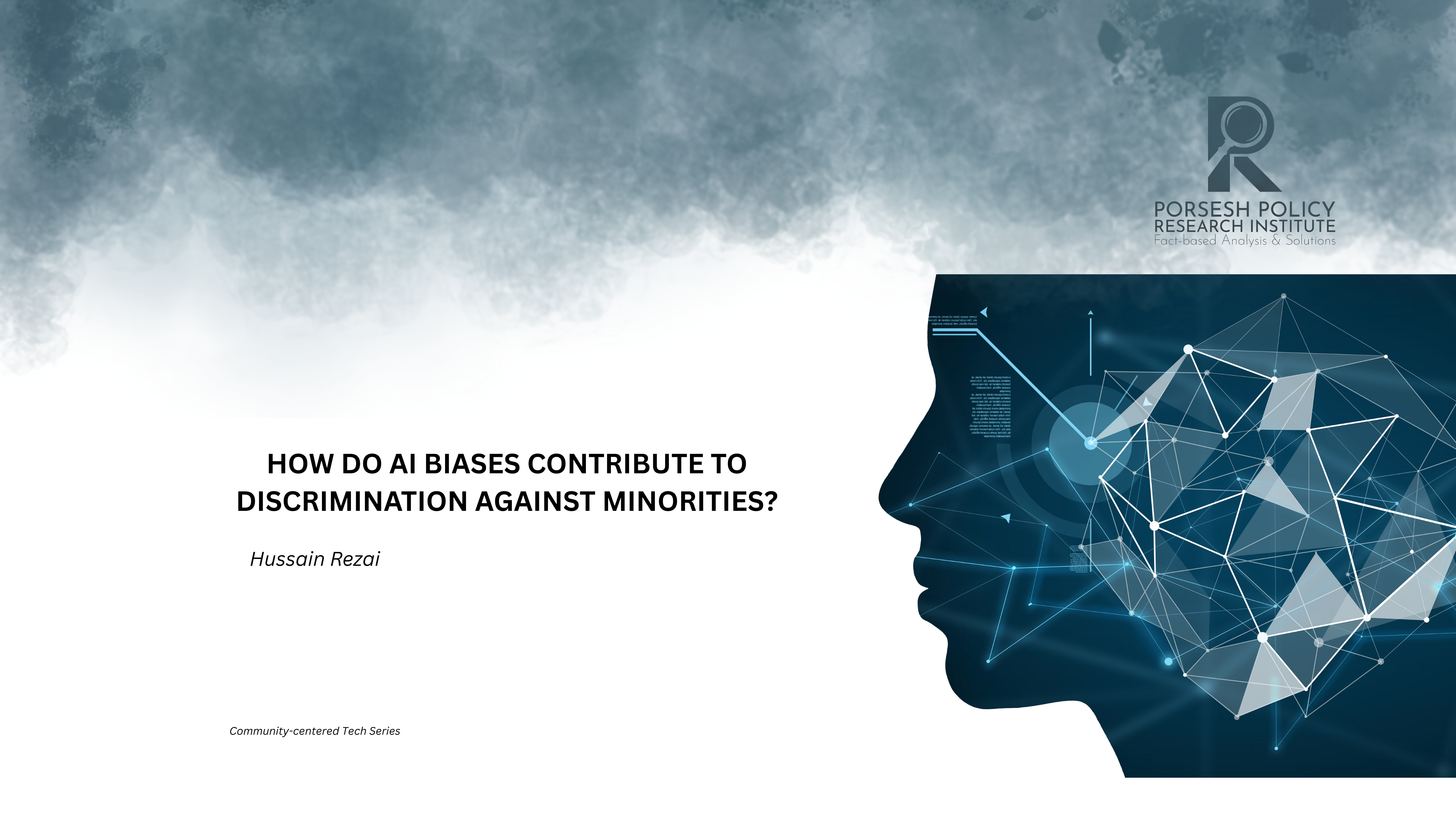How Do AI Biases Contribute to Discrimination Against Minorities?
by porseshresearch | Sep 29, 2025 | PRBlog

By: Hussain Rezai
Artificial Intelligence (AI) is now deeply embedded in decision-making processes across sectors such as hiring, healthcare, criminal justice, and financial services. Predictive AI in particular influences everyday life, but its impact is not always fair. Bias in AI systems can emerge from underrepresented or incomplete training data, flawed algorithmic design, and broader societal inequalities. These biases often reproduce or even amplify existing discrimination, leaving minorities and marginalized groups especially vulnerable to harm. In this context, minority groups can be understood as “minority data”; their experiences and identities are frequently absent or underrepresented in datasets, which leads to exclusion and unequal outcomes.
The consequences of AI bias extend beyond technical flaws; they directly affect fundamental human rights, including equality, privacy, education, health, and security. Tackling this issue requires more than improving models; it calls for legal, social, and policy measures at both national and international levels to ensure AI systems respect the principles of fairness and non-discrimination.
This report examines how AI bias leads to algorithmic discrimination, why it disproportionately affects minorities, and what can be done to mitigate these harms.
Interested in Learning More?
Click here to read the full report.